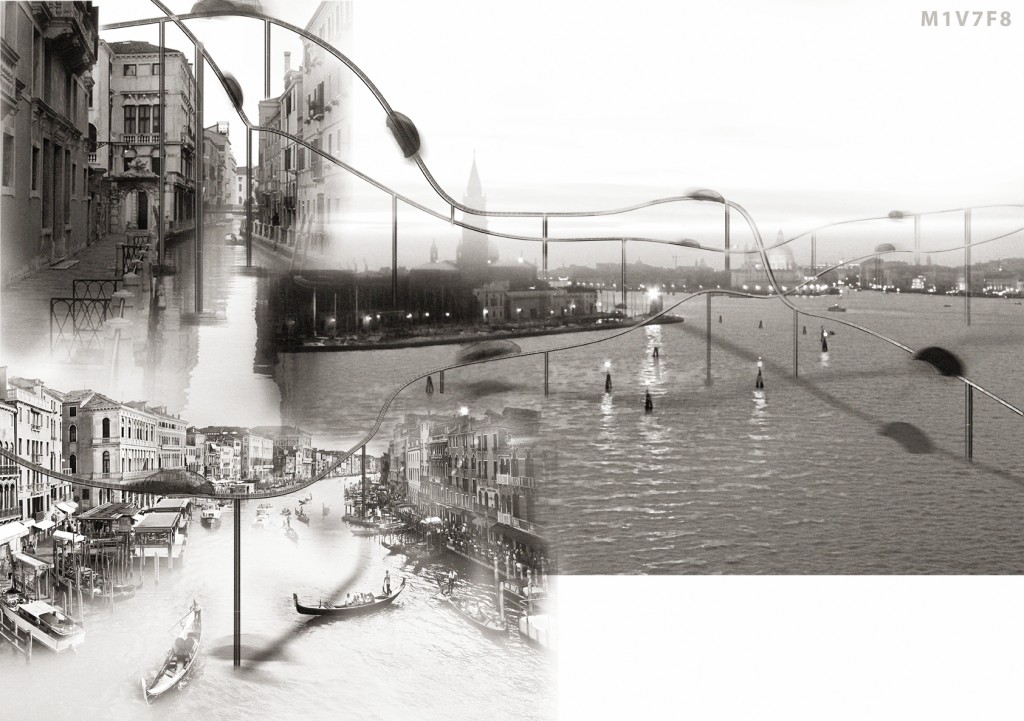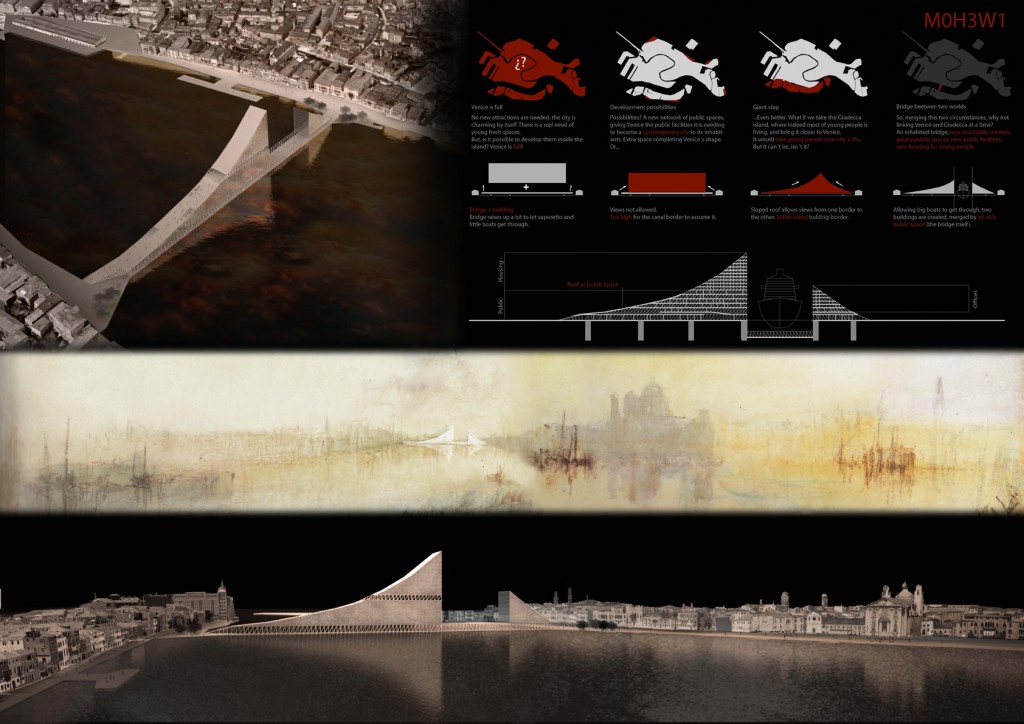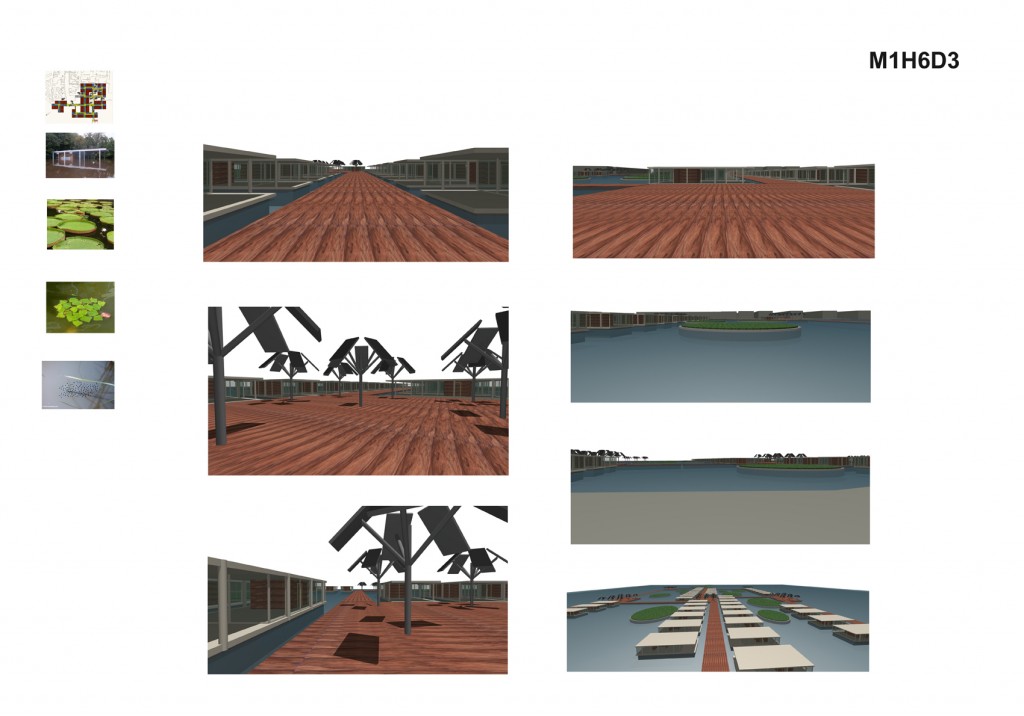Info:
Title: Venice - Code: M1H6D3Contest: Venice / 2011
By: M. Trevisan
Views: 2283 Likes: 0
Votes:
BJARKE INGELS6 NERI OXMAN7 ELENA MANFERDINI1 MARIA LUDOVICA TRAMONTIN4 BOSTJAN VUGA13.8
Venice
History tells us of persons with a vision of the world anticipating what it would have been even centuries later: think to Leonardo drawing machines realized only in the 19th century… We study architects’ projects visualizing solutions so advanced for their time that, often, have been discharged as ‘impossible’ or of ‘no interest’. Other have been realized, and now we can have the pleasure of admiring the results of innovative minds and open-minded decision makers (the history of the Venetian Republic is full of examples of this fortunate combination that has produced architectural solutions due to last for centuries…).
This project is aimed to look forward, grasping from great ideas of the past. Thinking to the future but in a sustainable manner, taking advantage of the existent technologies.
New floating residencies for students, visitors and faculty members are planned for the San Giobbe Campus of the University of Ca’ Foscari of Venice, following the famous project that Le Corbusier drawn for a hospital to be built in that same area. It is the same location chosen by Le Corbusier, but this time without adding more ground to the lagoon but respecting the water element. Houses are floating and linked one to each other by floating roads and floating squares on which trees with hanging solar panels are gathering the energy sufficient for all the dormitory activities (the shape of the trees is inspired by the sculptures of the contemporary artist Johannes Pfeiffer).
Houses lines are instead inspired by the essentiality of the Mies van der Rohe’s Farnsworth house. Here the essentiality of the lines is spelled also by the essentiality of the building materials: only recyclable, renewable material will be used. Big green floating decks allow to grow the typical lagoon vegetables. Under water a net of technical apparatus assure fresh water, heating (geothermally produced), cable links. All is organized in a flexible way, to allow for easy changes in the future to adapt for changing needs.
New residences to let the old town leave with new blood for many other centuries. A sustainable, innovative approach to let this happen now and last for the future.
Info:
Title: Venice
Time: 6 giugno 2011
Category: Venice
Views: 2283 Likes: 0
Tags: Farnsworth House , Future , Le Corbusier , Ludwig Mies van der Rohe , Mies , Rohe , Seagram Building , Trevisan , Venice








